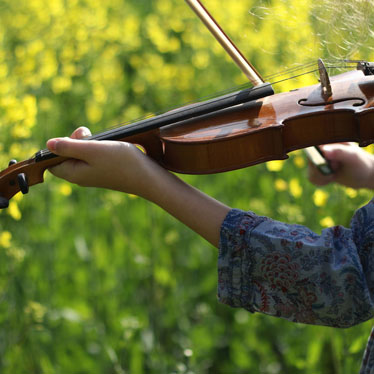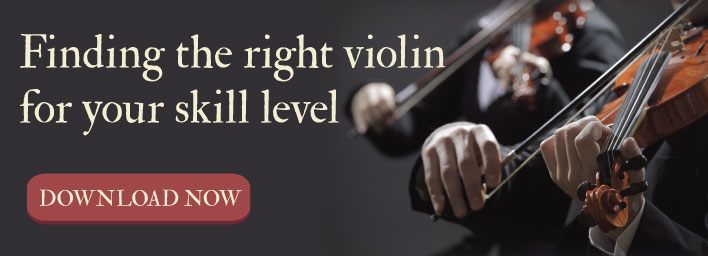Get Outside! How Nature Can Inspire You to New Levels!

Every artist, regardless of their craft, at some point or the other loses their desire to create. Whether they are singers, sculptors, painters, writers, musicians, or any other type, a lack of inspiration is the bane of every person who generates art; and it invariably happens to them all. If you’ve been feeling less than contented about playing your instrument or composing music, odds are that you need to find a new muse.
Consider nature. Nature’s powerful beauty and majestic splendor have long been a source of inspiration for artists. Throughout history, it has shaped our culture and our personal beliefs, playing a crucial role in the type of creative expression we as humans, use to understand and explain the world around us and our existence. Nature can inspire you to reach new levels of artistry because it speaks to the soul in ways that nothing else has the power to do.
Examples of Nature in Music
Nature is a prominent theme in a number of the most beloved classical compositions. Its influence is felt in Vivaldi’s “The Four Seasons,” a four concerto work that examines the most thrilling parts of each specific time of year. In “Spring,” instruments are used mimic the rustle of leaves in the wind. “Summer” features an electrifying thunderstorm by using diminished chords, while in “Winter,” you can hear the frigid cold in the pizzicato notes and a contrast of warmth in the violin solos that signify a fireside.
Moreover, Beethoven’s “Symphony No. 6” includes elements of nature such as a bubbling brook and a thunderstorm that builds in magnificence. Chopin’s “Raindrop Prelude” (Prelude in Db Major) and Rimsky-Korsakov’s “Flight of the Bumblebee” both utilize elements of nature that are recreated in music. “America the Beautiful” is full of descriptive lyrics that call to mind specific natural wonders. Music and nature are thoroughly connected because music creates images with sound in an art form that is as old as time.
Getting Started
Depending on where you live, there are a number of places that can offer natural inspiration. For musicians fortunate enough to live nearby a National Park, taking a drive into untrammeled environments provides plenty of sensations that can be used to inspire you. For example, small hikes into the woods or even just sitting next to a small stream can help get your creative juices flowing.
You can also go to your neighborhood park or your backyard to observe nature and find inspiration. Get close to the ground to observe the delicate beauty of a blade of grass or tiny flowers. You can watch bees and insects flying around, or just listen to the wind flow through the branches of the trees. There are tons of ways that nature can inspire you.
Consider Nature in a Music Context
Just by itself, nature offers a peaceful way to connect with your art. When you’ve been feeling bored with playing, just getting outside can help revitalize your spirit so that you can bring new life into your everyday activities. However, when you observe nature in a music context, you can open up new possibilities.
For example, listen to a bird’s song. There will naturally be repetition, but can you discern small snippets of a melodic phrase? Is there an answering call that sounds similar, yet different? Do two or more calls seem to meld into a subtle harmonic structure? How do the elements of nature combine in a woodland, desert, or plains area to create the symphonic environment that you hear, see, and smell? How can you express that feeling with music?
By considering music as it pertains to the patterns in nature, you can find inspiration almost anywhere. Plus, by getting outside, you change your surroundings, which has a major influence on your thoughts and feelings. Studies have shown that nature has a positive stimulus on:
- Healing adult depression
- Improving recovery rates after surgery
- Reduced symptoms and improved overall general health
In fact, screen time, which we all have to endure, is very detrimental. Time spent in front of the tube or your computer increases your risk of depression, and triggers a loss of empathy and lowered altruism. A 2011 study released in the Journal of the American College of Cardiology found that too much screen time also has the power to “dramatically increase the risk for heart disease and premature death from any cause, perhaps regardless of how much exercise one gets.”
Technology is certainly an advantage for some things, but it can really zap your joy and inspiration. So if you need to recharge your artistic battery, the best thing you can do is get outside and soak up the beautiful splendor that nature provides on a daily basis.


